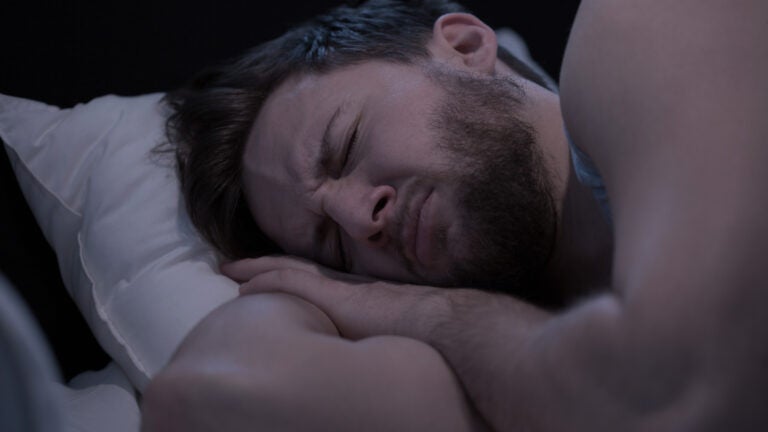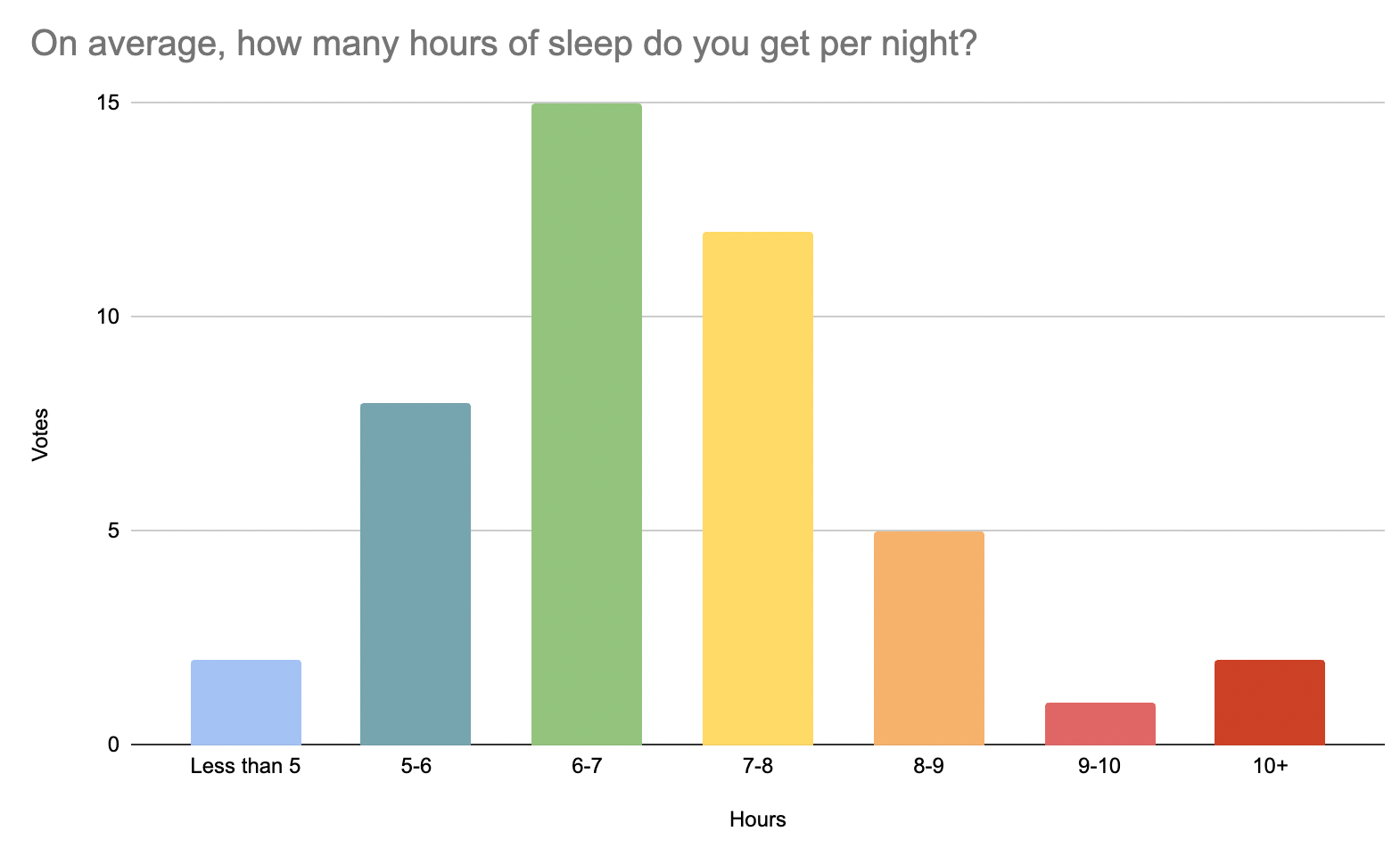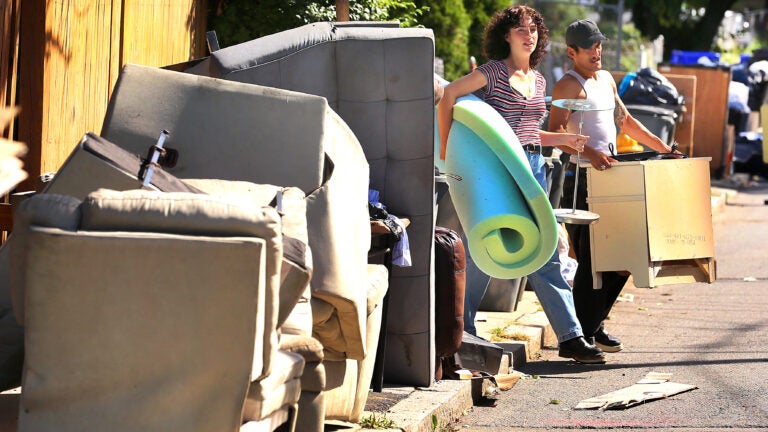Boston.com readers don’t get enough sleep. Here’s how to sleep better.
A professor at the Harvard Medical School’s Division of Sleep Medicine shares how you can get more shut-eye.

If you’re a Boston.com reader reading this when you should be sleeping, stop it! (This might be the only time we’ll ever ask you to click away from a story and put your screen away).
Like one in three adults, Boston.com readers don’t get enough sleep. We recently asked our readers about their sleep habits, and it’s no surprise that the majority (59%) said they weren’t getting enough shut-eye.
Even one night of poor sleep can make you feel tired the next day, put you in a bad mood, lower your productivity at work, and even increase your likelihood of getting into a car accident, according to the CDC.
Many of us have become so accustomed to insufficient sleep that we forget what it feels like to be well-rested, according to Elizabeth Klerman, a professor of neurology at Harvard Medical School’s Division of Sleep Medicine.
More on Sleep:
“People don’t realize what it feels like to feel alert. They just think oh yeah, it’s normal to feel awful, and I need caffeine in the morning,” she said in an interview with Boston.com. “Well, you may need caffeine in the morning because you haven’t gotten enough sleep.”
There are a variety of reasons why many people struggle to get enough sleep, whether it be sleep disorders like insomnia or restless legs syndrome, or simply not being in bed long enough to get enough sleep due to a hectic lifestyle.
“Some people have too many responsibilities. They have two jobs, three jobs, they have children, they have a partner, they have all these things and they literally cannot get the sleep that they need. Some don’t give themselves enough time to sleep,” Klerman said.
The American Academy of Sleep Medicine and the Sleep Research Society recommends that adults ages 18-60 get seven or more hours of sleep per night. For teens that number rises to 8-10 hours per 24 hours, and as much as 16 hours for infants.
Among our readers, 15 (33%) of the 45 respondents to our poll said they are getting six to seven hours of sleep per night – just below the recommended amount of seven hours or more per night – followed by 12 (27%) getting seven to eights hours; eight (18%) getting five to six hours; 5 (11%) getting eight to nine hours; 2 (4%) getting less than five hours and 2 (4%) getting 10 or more hours; and one (2%) respondent getting nine to 10 hours per night.

There’s an easy — and somewhat unexpected — way to tell if you’re getting enough sleep, and it’s sitting right on your nightstand: your alarm clock (or lack thereof).
“If you need an alarm clock, you’re not getting enough sleep. If you’re getting enough sleep, you don’t need an alarm clock to wake up. You would wake up naturally,” Klerman said.
Getting enough sleep, like eating a balanced diet and doing regular exercise, is important for our physical health in more ways than one, Klerman said.
“Getting sufficient sleep is good for your metabolism, for your cardiovascular system, for your mental health, for all these things,” she said.
As a matter of fact, in January the American Heart Association added sleep to their list of the ‘essential eight’ measures for improving and maintaining cardiovascular health.
Improving your sleep can even help lessen your likelihood of developing mental illness, Klerman said.
“With improved sleep, people are less likely to have psychiatric symptoms and have a recurrence of psychiatric symptoms,” Klerman said. “So it’s not just that the psychiatric symptoms caused the sleep disturbance, but the sleep disturbance in some ways is linked to the psychiatric disturbance or the risk of psychiatric disturbance.”
So, how can you get better sleep?
Klerman recommends not having a TV in your bedroom and avoiding doing stressful activities, such as paying bills or watching a horror movie before bed, as well as having a calming bedtime routine to improve your ability to fall asleep.
She also recommended the following websites for their resources and information on getting better sleep:
- The National Sleep Foundation
- Sleep and Health Education Program, Harvard
- Sleep and Sleep Disorders, CDC
- Sleep Health, NIH
Some of our readers, like J.F. from Harwhich, told us she knows her before-bed habits might not be ideal for a restful night’s sleep, so she tries to make up for it with naps.
“All very bad habits. I go to bed too late. I read the news on my phone. I get up late too. I will take naps to try and make up for lost sleep,” she said.
Similarly, M.F. from Tewksbury said she will “go to bed but then catch up on news and Facebook on [her] phone.”
Are your sleep habits similar to our readers’? Check out a sampling of what readers had to say about their nighttime routines.
Some responses have been edited for length and clarity.
Readers share their nighttime routines:
“I put my kids to bed, do the dishes, and clean up all the mess after kids dinner, then I have tea time, shower, and fall asleep right away…far past 12 a.m. because being a working mom is tough.” — Anonymous reader (gets 5 hours or less of sleep per night)
“I turn off my computer, have a snack – a carb and beverage, usually toast or hot cereal and hot herbal tea or cocoa – brush my teeth and wash my face, pray, and then get in bed. Sometimes I read a book chapter or so. Then I fall asleep.” — Anonymous reader, Allston (gets 7-8 hours of sleep per night)
“I have arthritis in my feet so I use CBD roll-on, then go to bed around 10 p.m. I’m up a few times for the bathroom, but I go right back to sleep. I get up after 7 a.m.” — Michael L., Mansfield (gets 7-8 hours of sleep per night)
“I turn on a fan, turn on a sound machine, pull the blinds, lights out, fluff an extra pillow, read my Kindle for 20 minutes, finish reading, then throw the extra pillow to the floor. Nighty night!” — Rex G., Hopkinton (gets 8-9 hours of sleep per night)
“Count sheep.” — Cheryl, Wellesley (gets 5-6 hours of sleep per night)
“I have a light dinner, eating no later than 6:30 p.m. Then early to bed. I start to wind down by 8:30 p.m. and sleep by 9 p.m.” — Brian M., Pembroke (gets 7-8 hours of sleep per night)
“ I force myself to go to bed so I can get up at 5:30 a.m. I prefer to wake up naturally – no alarm.” — Jeff, Seekonk (gets 7-8 hours of sleep per night)
“Wash face, brush and floss teeth, moisturize, change into pajamas, read, go to sleep.” — Mary I., Devens (gets 7-8 hours of sleep per night)
“Eat dinner by 6 p.m. latest. In bed by 10 p.m. to 10:30 p.m. Up at 6:30 a.m. for a workout at 7 a.m.” — Ron, Newbury (gets 7-8 hours of sleep per night)
“Unwind watching TV, brush my teeth, pass out.” — Kevin, Bedford (gets 6-7 hours of sleep per night)
“Gear down, watch TV, then go to bed. I have to work 50+ hours a week to survive in Crapachusetts so I really have no time to sleep.” — Michael A., Middleboro (gets 5-6 hours of sleep per night)
Boston.com occasionally interacts with readers by conducting informal polls and surveys. These results should be read as an unscientific gauge of readers’ opinion.








Be civil. Be kind.
Read our full community guidelines.